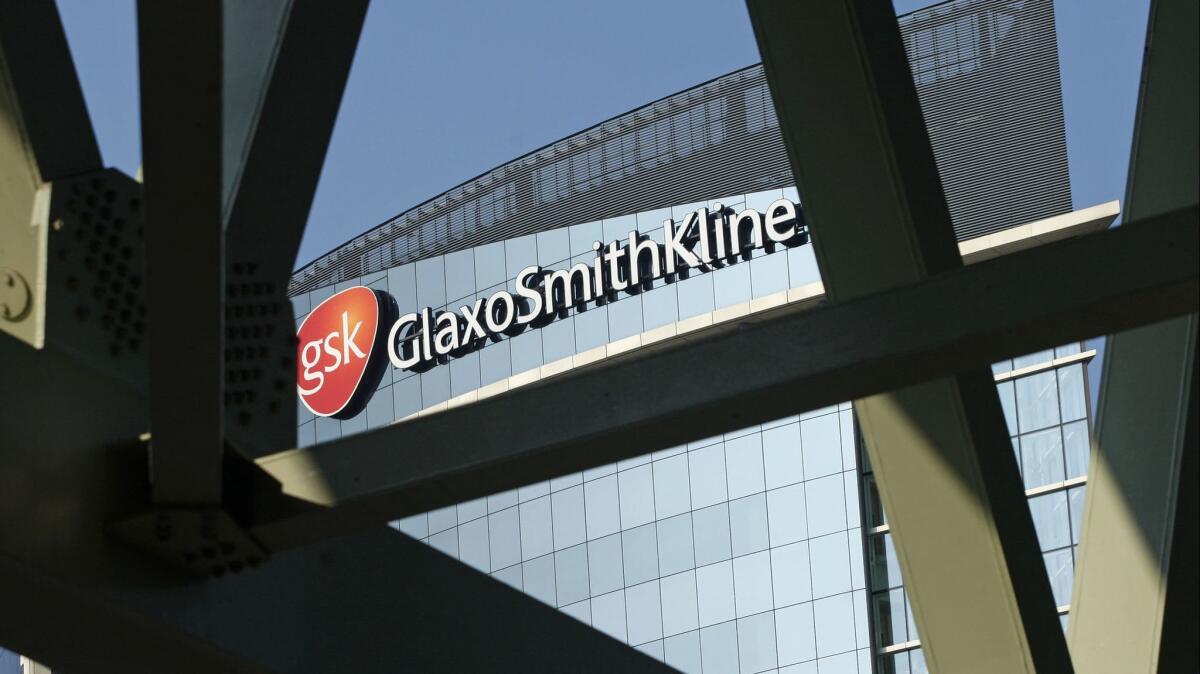Glaxo, Pfizer joint venture creates world’s largest supplier of over-the-counter drugs

GlaxoSmithKline Plc is splitting into two companies and creating a consumer-health joint venture with Pfizer Inc. that will be the world’s biggest supplier of over-the-counter medicines with brands such as Advil and Panadol.
Glaxo will have a 68% controlling stake in the new entity, with combined sales of $12.7 billion and led by Brian McNamara, the chief executive of the British pharmaceutical giant’s consumer arm. The deal lets New York-based Pfizer exit a business after a yearlong sale process failed to find a buyer.
The noncash transaction marks a shift from Glaxo CEO Emma Walmsley’s previously stated strategy of keeping the steadily performing consumer and vaccine businesses under the same roof as the more volatile pharma operations.
The drugmaker’s shares surged as much as 8.3% on the London stock exchange.
Pfizer closed the day down 1% at $41.97.
The benefits of separating Glaxo into two companies — one dedicated to prescription medicines and the other to consumer health — outweigh the advantages that come with a more diversified structure, Walmsley told reporters on a conference call. By moving out of the competitive, lower-margin over-the-counter business, Glaxo and Pfizer can focus on drug development as research costs surge and governments and insurers demand lower prices.
“Historically we’ve liked the balance of a broader company but we’ve always been pragmatic about that,” Walmsley said in an interview with Bloomberg Television.
Intense price competition online from the likes of Amazon as well as own-brand store products have dented consumer-health margins in the U.S. and parts of Europe, prompting consolidation. A month after Reckitt Benckiser Group Plc ended talks to acquire the Pfizer business this year, Procter & Gamble Co. agreed to pay about $4.2 billion to acquire Merck KGaA’s consumer-health unit and gain brands such as Seven Seas vitamins.
The deal will help “support our No. 1 priority, which is strengthening the pharma business,” Walmsley said. The transaction will let Glaxo focus on developing drugs for cancer, HIV and other diseases, taking it out of the business of selling low-priced products in the competitively squeezed consumer field.
In the business of selling over-the-counter remedies, where brands and heft are key, New York-based Pfizer made the bet that it wasn’t big enough on its own. An earlier attempt to sell the consumer business failed after potential buyers dropped out of the bidding process.
“Pfizer realized it was too small and that it was facing increasingly tough competition,” said Timo Kuerschner, an analyst at Landesbank Baden-Wuerttemberg.
That could be a harbinger of things to come for the consumer health market as rivals weigh how to react to the creation of a leader in the field, according to Kuerschner. Other drugmakers with integrated consumer-health divisions include Johnson & Johnson, Bayer AG and Sanofi. In another industry shift, General Electric Co. has filed confidentially for an initial public offering of its healthcare unit, according to people familiar with the matter.
The newly created Pfizer venture with Glaxo will operate under the name GSK Consumer Healthcare. Tobias Hestler, the existing CFO of the British company’s consumer arm, will assume the same role at the combined entity. The transaction is expected to close in the second half of 2019. After that, Pfizer said it plans to deconsolidate its share of the business, which may boost its operating margins.
Walmsley has been working to revitalize a lackluster pipeline of new prescription drugs at Glaxo, culling programs to focus on those that look most likely to succeed and bringing in industry veteran Hal Barron to oversee research. Earlier this month, Glaxo agreed to buy drugmaker Tesaro Inc. for $5.1 billion, expanding in cancer medicines for a price analysts deemed high.
The deal follows a move by Glaxo earlier this year to pay $13 billion for Novartis AG’s stake in a consumer joint venture. Glaxo said Wednesday that it expects annual cost savings of $633 million by 2022, with up to a quarter of that money redeployed to pursue further growth opportunities.
More to Read
Inside the business of entertainment
The Wide Shot brings you news, analysis and insights on everything from streaming wars to production — and what it all means for the future.
You may occasionally receive promotional content from the Los Angeles Times.









